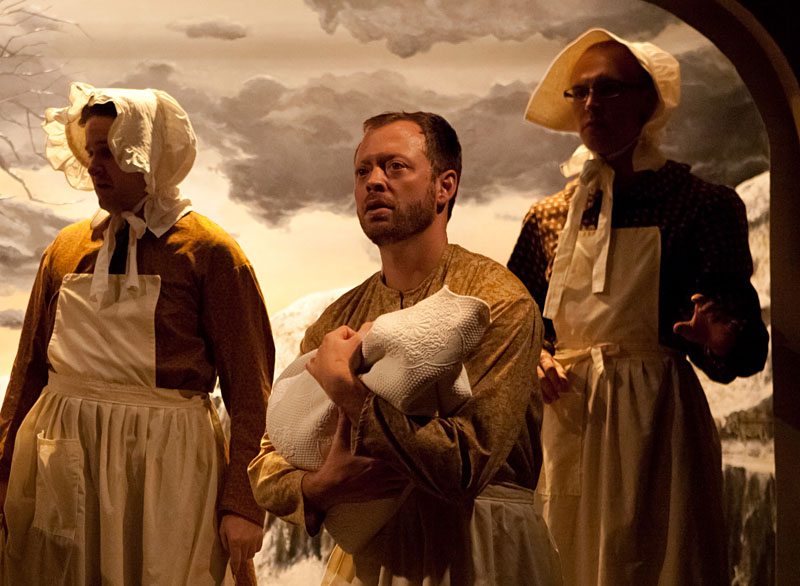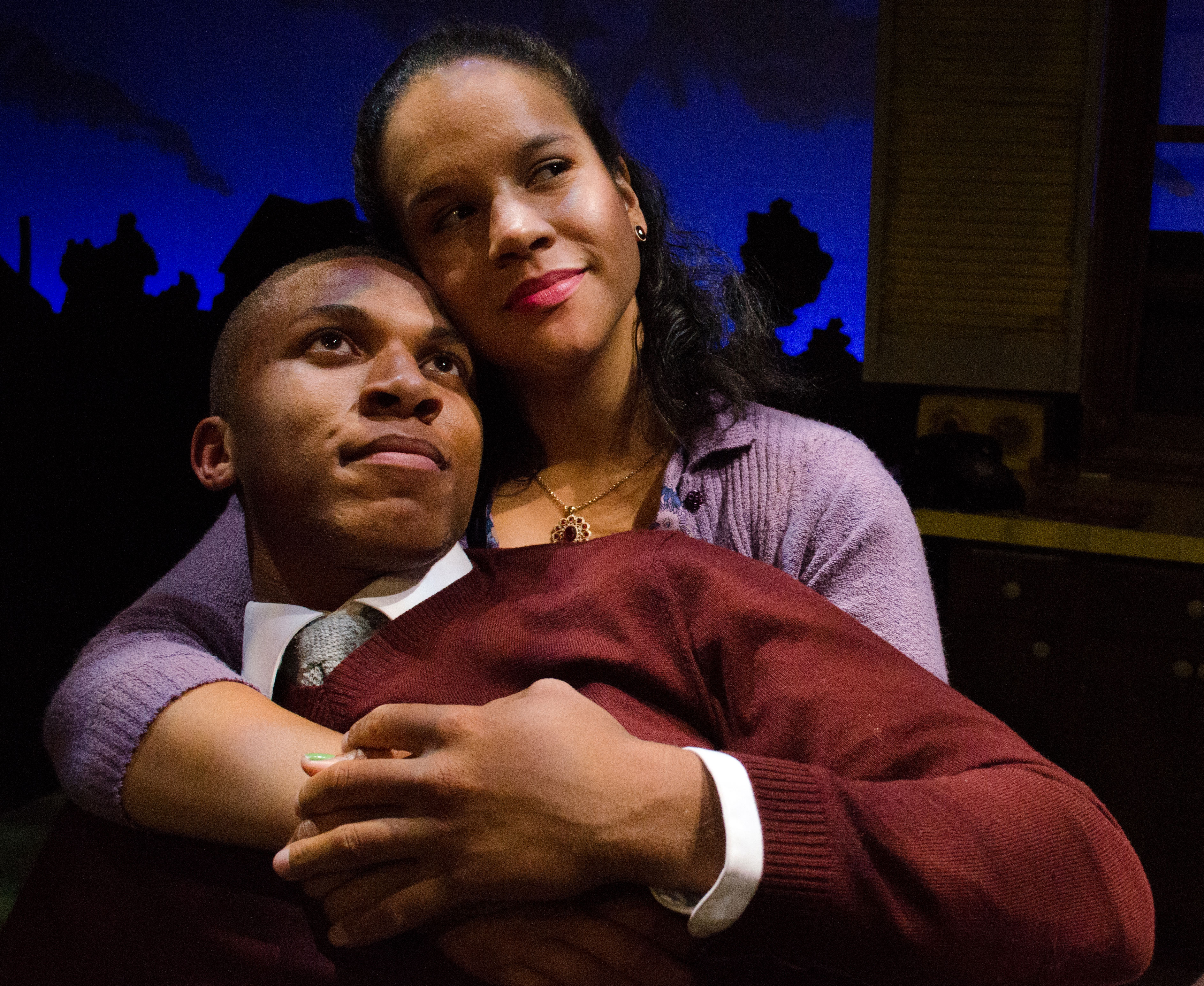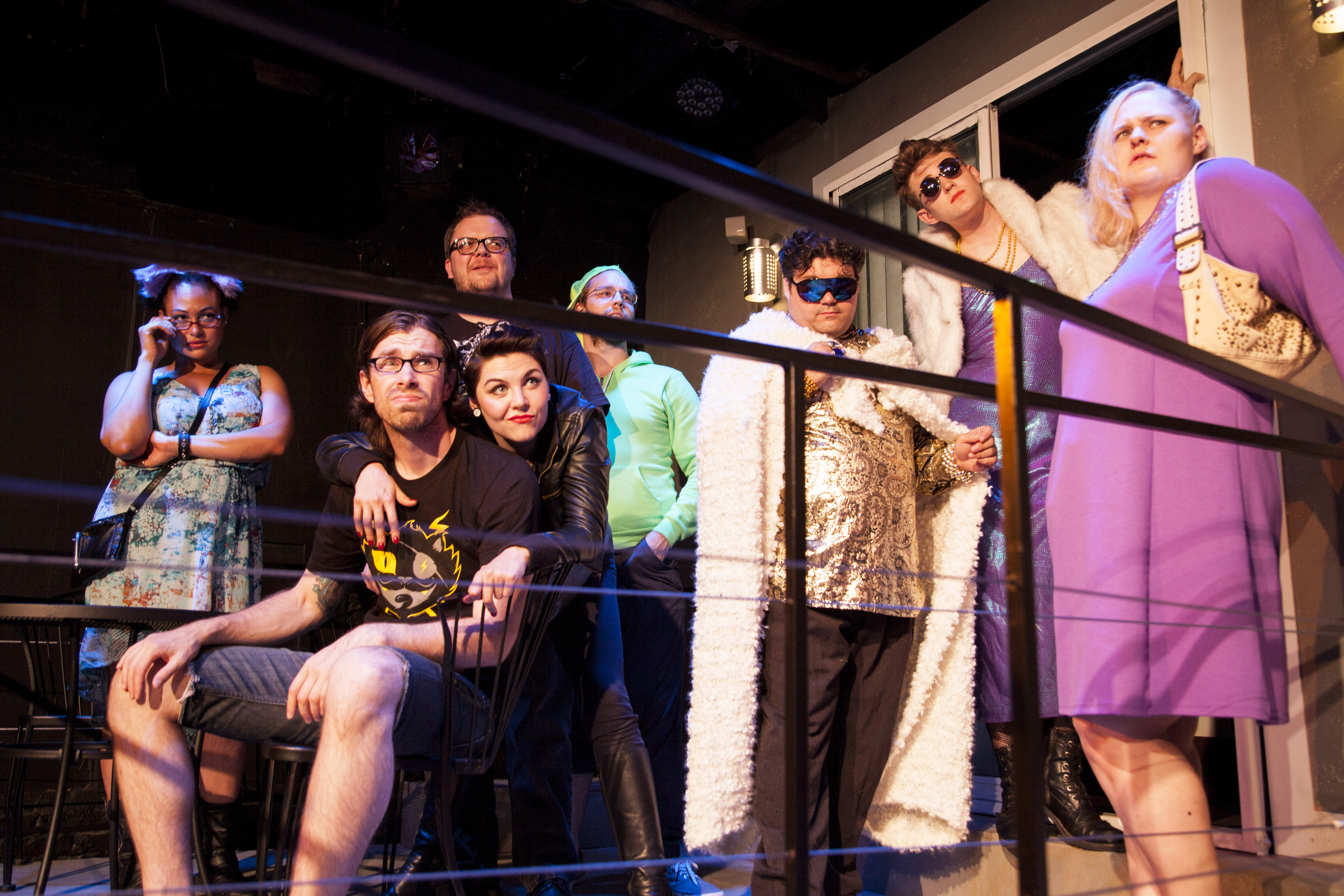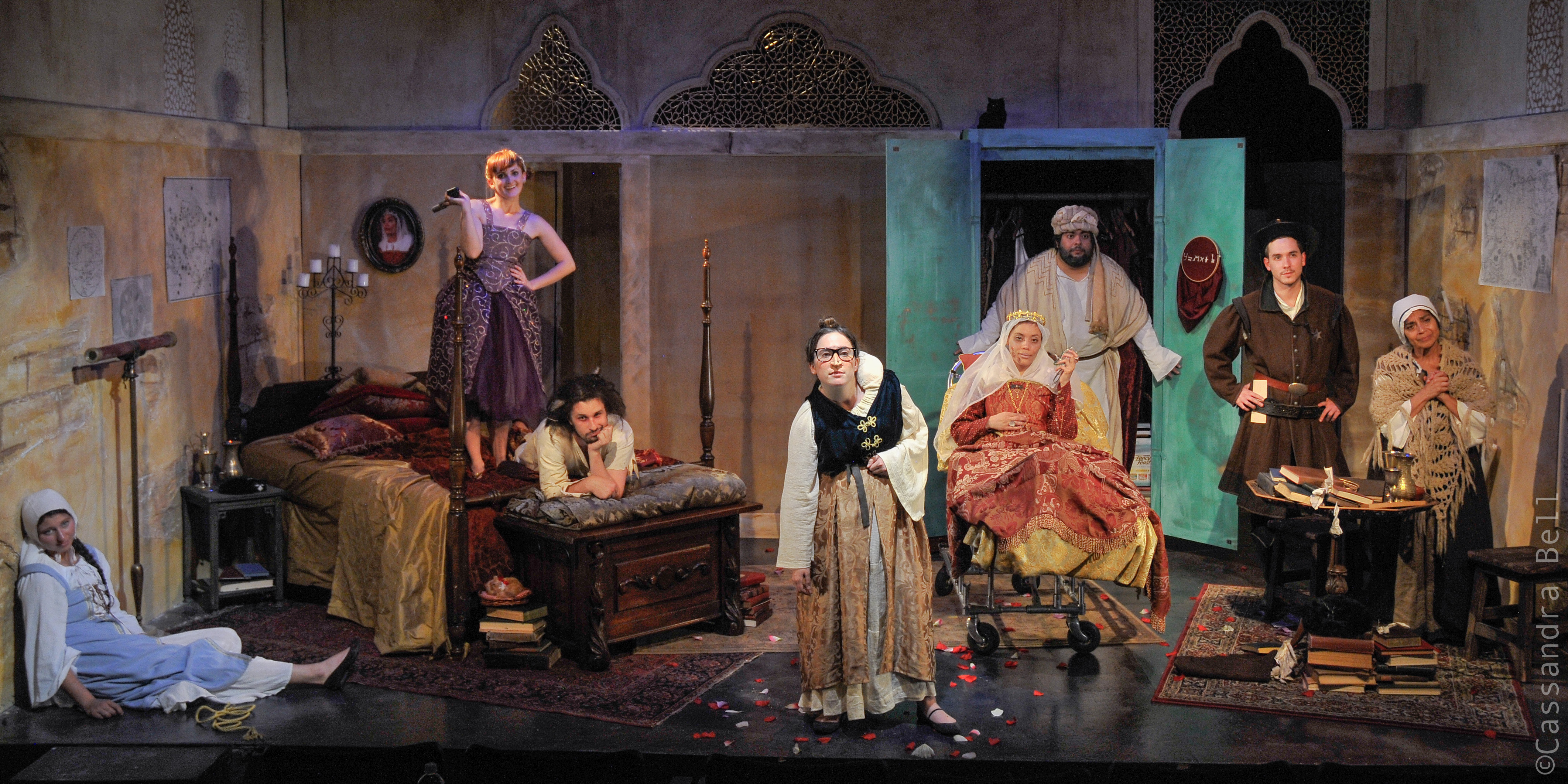The Mormon Bird Play is too clever for itself by half. Where this WET premiere aspires to be poetic and lyrical, it is instead turgid and exclusionary. Where it ought to provide insight, it substitutes allegory. The result is one dead bird and much audience grousing on the way out—typified by one guy I overheard saying he was “pretty sure there was something to get in that, but I have no idea what it was.”
As a playwright, Seattleite Roger Benington is no more fond of explaining his work than he is making the work of others clear. Last year, he directed New Century’s O Lovely Glowworm, or Scenes of Great Beauty, and the result was a fever dream of unsettling quasi-reality. The same applies here, though most of what happens in The Mormon Bird Play is superficially mundane. We begin with a bevy of squabbling pubescent girls—played by grown men—whose Mormon family is welcoming the mysterious Ivona (Parker Matthews) into their midst. (Benington credits an obscure Polish absurdist comedy from the ’30s, Ivona, Princess of Burgundia, as his starting point.) The Mormon girls then must decide if she’s mentally ill, possesses God-given powers, or is a malevolent force bent on driving them apart.
In place of plausible characters, Benington populates his script with self-serving magpies-in-training and big ideas made diaphanous by too much metaphor. When everything represents something else, you’re wandering an unrecognizable terrain with no logic landmarks to guide you. This becomes especially problematic when the play launches into a fantasy realm, where a young man is initiated into a secret faith (not the Mormon church, but something feathery and allegorical). These scenes are otherworldly and captivating, but also too willfully obtuse. Then we jump back to the hardships endured by Mormon pioneer women during their move west. Neither episode goes anywhere, much like rest of the play, but at least they demonstrate a command of stagecraft and the ability to proceed, however briefly, in a linear fashion.
What cannot be faulted is WET’s fine ensemble cast, faced with a script that’s stuffed with screaming but very little emotion. They’re given the herculean labor of finding moments of nuance and humanity. Case in point: Devon Bannon underplays the closeted gay Clifford through a series of long glances and a body language that has him constantly hugging the edges of the stage—trying either to escape or hide. And while it’s never explained, the guys play the girls with genuine affection, whether they’re gossiping or offering a moment’s solace to one another.
Far be it from me to say that Benington can’t write or direct. But The Mormon Bird Play (and O Lovely Glowworm) suggest that he’d prefer to ignite an imagination (especially his own) than to touch a heart. With so many ideas and opinions to share, and without the pruning of an outside director, his audience is lost in insufferable murk.








